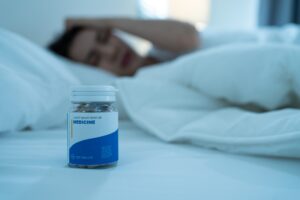Short chains of amino acids known as peptides are rapidly gaining attention for their role in immune modulation. Three thymus-derived (or thymus-inspired) peptides—thymosin alpha-1, thymulin and thymogen—offer distinct, research-backed ways to reinforce the body’s natural defences at different intensities and for different clinical needs. This guide reviews how each peptide works, typical administration routes and safety considerations.
Why the Thymus Matters
The thymus gland, located behind the sternum, is the training ground for T-cells that direct adaptive immunity. Its activity peaks in childhood and naturally declines after adolescence, which partly explains the drop-off in immune robustness with age. Thymus-related peptides aim to “remind” an ageing immune system how to mount an effective response.
Thymosin Alpha-1: The Heavy Hitter for Viral & Oncologic Support
Thymosin α-1 (TA1) is the most potent of the trio. Synthetic TA1 (sometimes branded as thymalfasin) is approved in more than 35 countries for treating chronic hepatitis B & C and for enhancing vaccine response. Researchers are also studying it as an adjunct in HIV management, sepsis and several solid tumours.:
- Mechanism: Up-regulates T-cell activity, boosts natural killer (NK) cell function and enhances antibody production.
- Administration: Subcutaneous injection (commonly 1.6 mg) every 3 days or in cyclical protocols to avoid immune over-stimulation.
- Safety: Generally well-tolerated even in hepatic or renal impairment; transient rises in liver enzymes are documented but typically self-resolve.
Thymulin: Targeting Chronic Inflammation & Neuro-Immune Balance
Thymulin is a naturally occurring peptide that binds zinc for full activity. Studies show it dampens pro-inflammatory cytokines and may offer neuroprotective effects, making it useful in conditions such as persistent viral syndromes, rheumatoid arthritis, lupus and post-concussion neuro-inflammation.
- Mechanism: Immunomodulator rather than a full stimulant; shifts the immune response away from chronic inflammation.
- Zinc synergy: Optimal results require adequate zinc status—lab measurement of RBC zinc is recommended before therapy.
- Route: Typically subcutaneous; clinical protocols range from twice weekly to monthly.
Because thymulin draws heavily on zinc, concurrent supplementation (15-30 mg elemental zinc per day) is often advised, especially in deficient individuals. A broader overview of zinc’s role in inflammation can be found in peer-reviewed literature. See study abstract
Thymogen: Rapid, Everyday Immune Reinforcement
Thymogen (also marketed as “thymagen”) is a synthetic dipeptide that mimics thymic hormones at a lower potency. It is widely used in Eastern Europe as an over-the-counter immune modulator for upper-respiratory infections, post-operative recovery and seasonal flu.
- Mechanism: Normalises immune function—raising low activity and calming excessive responses.
- Administration flexibility: Available as oral capsules, nasal spray or injection, making it a convenient “first-aid” peptide when early infection symptoms strike.
- Ideal scenario: Mild to moderate infections, travel immunity, recovery from intense training or surgery.
Choosing the Right Thymus Peptide
The decision hinges on intensity of immune challenge and desired speed of action:
- Acute viral threats / oncology support: Thymosin α-1
- Chronic inflammation / neuro-immune axis: Thymulin + zinc
- Common colds, bronchitis, general resilience: Thymogen (oral or nasal)
Because peptide potency varies dramatically, professional oversight is essential. Periodic immune panels (CBC, lymphocyte subsets) and liver enzymes help ensure dosing remains both effective and safe.
Safety & Administration Quick Tips
- Use an insulin-gauge needle (31 G) for subcutaneous injections into abdominal fat.
- Cycle thymosin α-1 (e.g., 6-week course → 4-week break) to prevent immune hyper-activation.
- Store reconstituted vials at 2-8 °C and use within 20 days, unless manufacturer states otherwise.
- Avoid combining multiple strong immune stimulants without clinician guidance.
Disclaimer: Information provided is for educational purposes and does not replace personalised medical advice. Consult a qualified healthcare professional before beginning any peptide regimen.
Video Summary
To learn more about nutrition, fitness, and health from professionals and experts, visit our channel and subscribe: https://www.youtube.com/@Vitality-and-Wellness



